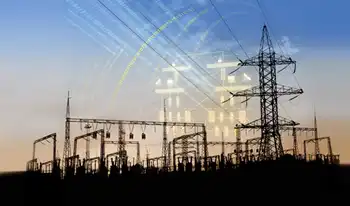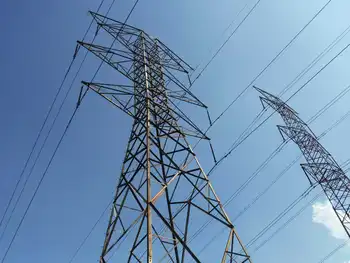B.C. approves 19 projects in clean power push
VANCOUVER, BRITISH COLUMBIA - British Columbia has given the green light to 19 private-sector clean energy projects that will generate enough power to supply nearly 218,000 homes in Canada's Pacific Coast province.
The approvals, announced by BC Hydro, the government-owned electricity utility, mark the first phase in the provincial government's long-delayed push to generate more green power.
Fourteen of the 19 proposals are 14 run-of-river hydroelectric projects, in which river water is diverted through turbines to produce power without the use of dams. The remainder are wind power projects.
Combined, the projects will generate more than 2,400 gigawatt hours of electricity annually.
Another 28 projects remain under consideration, said BC Hydro, which will announce additional awards in late March. The utility's target in the program is 5,000 gigawatt hours a year of clean power.
After four of its wind projects, with a combined capacity of 293 megawatts, got the green light, shares of tiny Finavera Renewable Inc soared 128.5 percent to 16 cents on the TSX Venture Exchange.
In contrast, shares of Plutonic Power Corp shed 4 percent after its Upper Toba Valley run-of-river project in a wilderness area on the Pacific Coast was selected.
Macquarie Capital Marks analyst Steve Harris said the market was likely surprised by Plutonic's decision to cut one of three planned facilities from Upper Toba Valley due to transmission constraint concerns.
Plutonic, whose project partner is GE Energy Financial Services, also said earlier this week that it had withdrawn its Bute Inlet proposal so that it could collect more data while advancing project studies and permit efforts.
Plutonic stock was down 14 Canadian cents at $3.34 on the Toronto Stock Exchange.
Innergex Renewable Energy Ltd had three run-of-river projects chosen. Innergex, whose stock rose 1.9 percent to $12.39, holds a two-thirds stake of the projects and Ledcor Power Group Ltd the remainder.
Fraser Mackenzie analyst John Safrance raised his rating on Innergex stock to "strong buy" from "buy" and hiked his target price to $10.55 from $8.40, citing the company's growth prospects.
Capital Power Corp's Quality Wind project in northeastern British Columbia, which the company estimates will cost $455 million to construct, was also chosen by BC Hydro. Commercial operation is expected by spring 2013, the company said.
Brookfield Renewable Power said it has been selected for a 40-year power purchase deal for its Kokish River hydroelectric project, being developed by Kwagis Power. The project has a planned start date of 2014.
Power purchase agreements, which will include the range of prices BC Hydro will pay for the power, will be submitted to the British Columbia Utilities Commission for review.
British Columbia has mandated that 90 percent of electricity generated in the province must come from clean or renewable sources by 2016. It also plans to achieve electricity self-sufficiency by 2016.
Green power developers have despaired at delays in the call for clean power, made in 2007. BC Hydro had been expected to announce winners last summer.
"We believe that BC Hydro's management of the call has been an embarrassment for the province," said analyst Harris in a note. "But the silver lining may be that it should set in motion a series of initiatives and reforms that are positive for (independent power producers) in B.C."
NaiKun Wind Energy Group Inc said its offshore wind project was not among the first wave of winners, but its proposal remains under consideration. Its shares fell 13 percent to 52 Canadian cents on TSX Venture.
NaiKun said its Hecate Strait project has won provincial environmental approval and that it is now working with the federal government and native Indian group Haida Nation to advance their reviews.
The company said it is also trying to diversify and reduce risk by acquiring electricity generating assets that are in advanced development. It said it is negotiating with multiple parties.
Related News

A new nuclear reactor in the U.S. starts up. It's the first in nearly seven years
ATLANTA - For the first time in almost seven years, a new nuclear reactor has started up in the United States.
On Monday, Georgia Power announced that the Vogtle nuclear reactor Unit 3 has started a nuclear reaction inside the reactor.
Technically, this is called “initial criticality.” It’s when the nuclear fission process starts splitting atoms and generating heat, Georgia Power said in a written announcement.
The heat generated in the nuclear reactor causes water to boil. The resulting steam spins a turbine that’s connected to a generator that creates electricity.
Vogtle’s Unit 3 reactor will be fully in service in May or June,…




